I´m facing a problem that is similar to Tinder´s matching logic, so I´m using that as an example.
My users can have a "match" between each other by having a common match entity with two user references.
@Data
@Entity
@Table(name = "match")
@EqualsAndHashCode(callSuper = true)
public class Match extends PanacheEntity {
@Column(name = "matchDate")
Calendar matchDate;
@ManyToOne
@JsonIgnore
User userA;
@ManyToOne
@JsonIgnore
User userB;
}
}
I like to have a single reference to all matches the user is part of from both user entity objects, however I need to choose (assuming using "mappedBy") the other side of the relationship, being either the first or second user.
@Data
@Entity
@Table(name = "user_")
@EqualsAndHashCode(callSuper = true)
public class User extends PanacheEntity {
@Column(name = "email")
String email;
@Column(name = "name")
String name;
// Needs to contain all "Matches", no matter if the user is referenced as "A" or "B"
@OneToMany
List<Match> matches;
}
I expect the List matches to be filled with objects the following query is representing, namely all matches that relate to the user, independent of the column.
select distinct match.id, user_a_id, user_b_id
from match,
user_
where user_.id = match.user_a_id
or user_.id = match.user_b_id
Something that gives me as a user any connection object I´m associated with, no matter if I´m the one who has invited or was invited.
Is there any way to implement it using Hibernate annotations?
